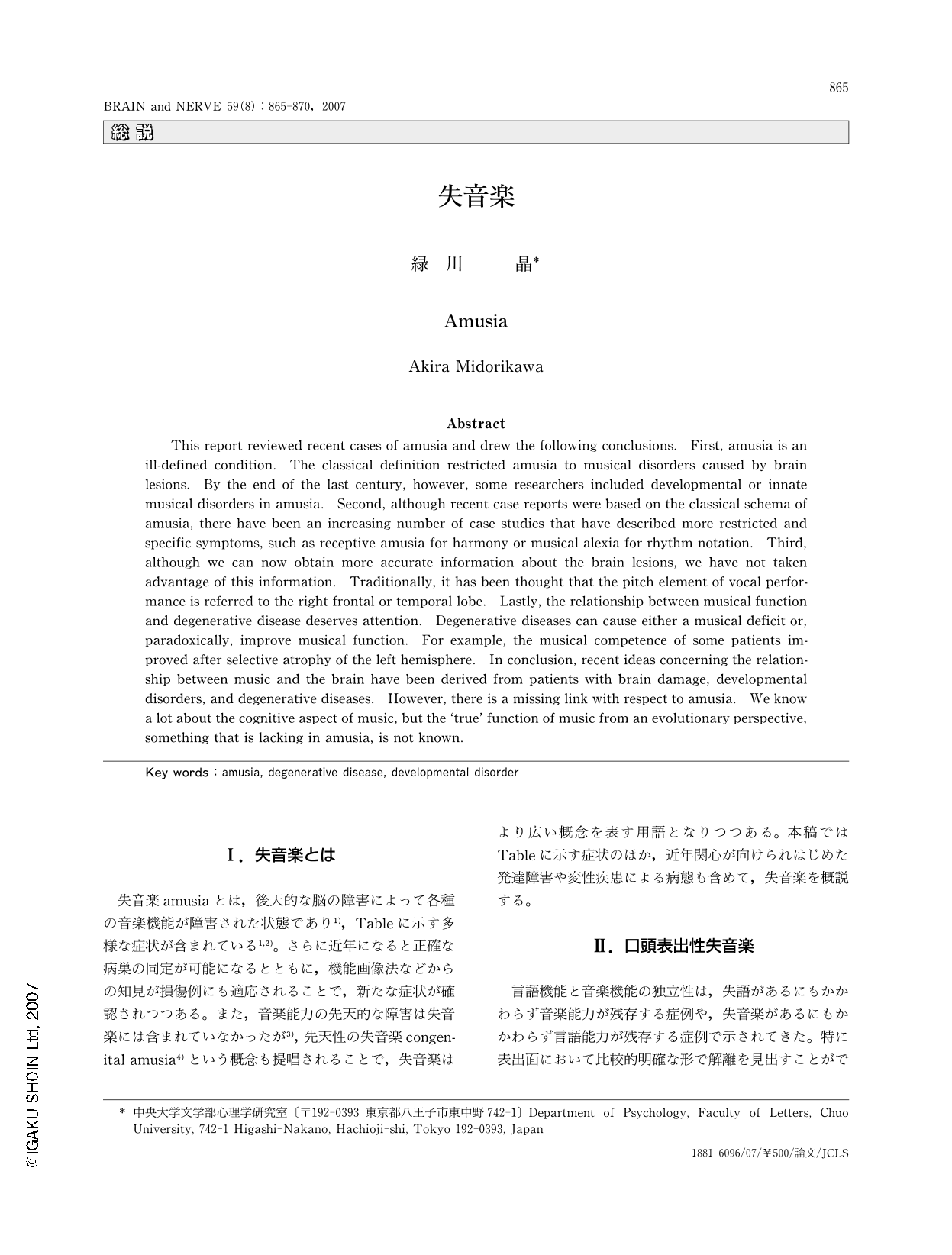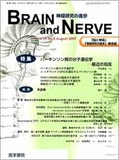Japanese
English
- 有料閲覧
- Abstract 文献概要
- 1ページ目 Look Inside
- 参考文献 Reference
Ⅰ.失音楽とは
失音楽amusiaとは,後天的な脳の障害によって各種の音楽機能が障害された状態であり1),Tableに示す多様な症状が含まれている1,2)。さらに近年になると正確な病巣の同定が可能になるとともに,機能画像法などからの知見が損傷例にも適応されることで,新たな症状が確認されつつある。また,音楽能力の先天的な障害は失音楽には含まれていなかったが3),先天性の失音楽congenital amusia4)という概念も提唱されることで,失音楽はより広い概念を表す用語となりつつある。本稿ではTableに示す症状のほか,近年関心が向けられはじめた発達障害や変性疾患による病態も含めて,失音楽を概説する。
Abstract
This report reviewed recent cases of amusia and drew the following conclusions. First,amusia is an ill-defined condition. The classical definition restricted amusia to musical disorders caused by brain lesions. By the end of the last century,however,some researchers included developmental or innate musical disorders in amusia. Second,although recent case reports were based on the classical schema of amusia,there have been an increasing number of case studies that have described more restricted and specific symptoms,such as receptive amusia for harmony or musical alexia for rhythm notation. Third,although we can now obtain more accurate information about the brain lesions,we have not taken advantage of this information. Traditionally,it has been thought that the pitch element of vocal performance is referred to the right frontal or temporal lobe. Lastly,the relationship between musical function and degenerative disease deserves attention. Degenerative diseases can cause either a musical deficit or,paradoxically,improve musical function. For example,the musical competence of some patients improved after selective atrophy of the left hemisphere. In conclusion,recent ideas concerning the relationship between music and the brain have been derived from patients with brain damage,developmental disorders,and degenerative diseases. However,there is a missing link with respect to amusia. We know a lot about the cognitive aspect of music,but the ‘true' function of music from an evolutionary perspective,something that is lacking in amusia,is not known.

Copyright © 2007, Igaku-Shoin Ltd. All rights reserved.


